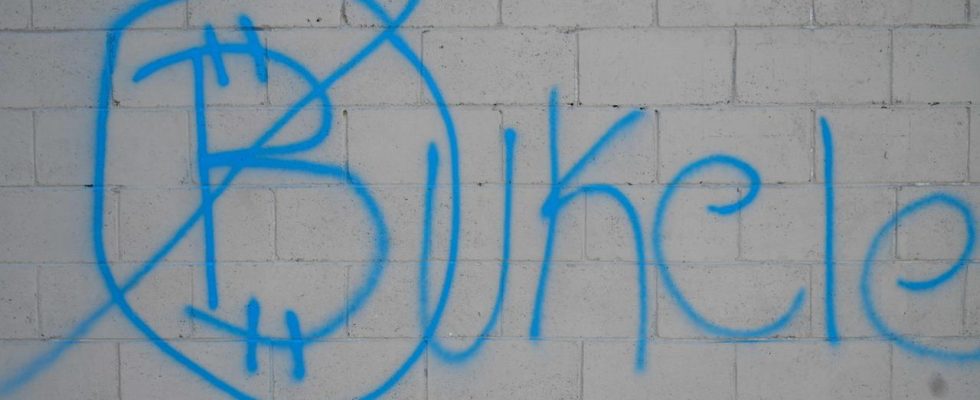El Salvador is the smallest country in Central America, and it’s anything but rich. Despite this – or perhaps because of this – the President introduced Bitcoin as the national currency in 2021. The record so far is sobering.
In September 2021, El Salvador’s President Nayib Bukele spectacularly staged the introduction of Bitcoin as the legal national currency, basses and fireworks accompanied the show from the start. He is hailed by the international bitcoin community for his courage and innovative spirit.
The then 40-year-old son of an entrepreneur, who describes himself as “CEO of El Salvador”, is certain: the cryptocurrency will bring El Salvador an upswing. “The Bitcoin system is just perfect. It’s the future. El Salvador hasn’t previously distinguished itself as a country of innovation. But why not this time?”
Hundreds of millions of dollars of tax money invested
The Central American country with 6.5 million inhabitants and the size of Hesse is better known as a country of poverty: 70 percent of the population live in precarious conditions. El Salvador also has one of the highest homicide rates in the world. Bukele wants to change that, Bitcoin is supposed to dry up the financial swamp of the gangs.
For this he invests 100 million dollars tax money. From the point of view of the economist Tatjana Marroquin, this is highly problematic. “For what reason does a country buy such a volatile currency?” she asks. “He is committed to his people, could use the money to make a significant difference in the lives of the most vulnerable people in the country, help the elderly or women in a situation of poverty.”
App is hardly used
The total investment of $300 million could have funded the country’s only public university for a year. A Bitcoin app, exchange machines and the $30 starting credit for all app users cost another $200 million.
“I downloaded the app and spent the $30. But I no longer pay with Bitcoin,” says a Salvadoran. Many are like him: those who earn an average of 400 dollars a month are happy to accept the cash injection. But according to a study by the University of Central America in El Salvador, the app is hardly ever used afterwards: almost 80 percent consider the introduction to be a failure.
disappointment prevails
Dora Guerrero is also angry and disappointed. “This is a big scam because bitcoin has gone down quite a bit. I had the equivalent of $500 in savings and suddenly I lost $200.” Economists assume that President Bukele has “gambled”: Bitcoin has lost 60 percent of its value since its introduction – 180 million dollars of Salvadoran taxpayers’ money have been lost.
Business representatives from the country also consider Bitcoin to be a flop, like Leonor Selva. “The problem is that, from our point of view, the bitcoin law has not created any jobs and has not yet triggered sustainable economic development. On the contrary: it has created risks for our country.”
A wave of copycats also failed to kickstart El Salvador’s Bitcoin experiment. Only the Central African Republic also introduced the cryptocurrency as an official means of payment in 2022 – one of the poorest countries in the world.

